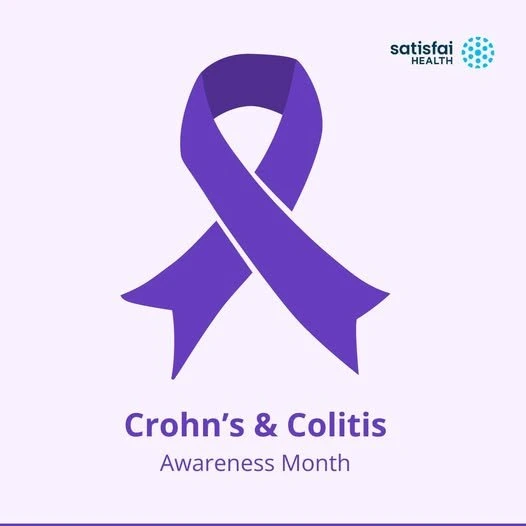
May is Crohn’s & Colitis Awareness Month. This year’s theme, “Shatter the IBD Silence,” invites us to raise awareness about the often-invisible challenges faced by the millions of people living with inflammatory bowel disease (IBD), including Crohn’s disease and ulcerative colitis.
Too often, people with IBD stay silent about their daily struggles with food, eating out, and managing symptoms. Nutrition is a crucial part of IBD management, yet remains under-discussed. Let’s explore these silences and how we can break them.
People with IBD often turn to restrictive diets to manage symptoms, especially during flare-ups. While temporary dietary changes may be necessary during active disease, long-term restriction without professional guidance can lead to malnutrition, disordered eating patterns, and worsening health outcomes.
Because every person’s IBD is different, nutrition support must be tailored. A one-size-fits-all approach simply does not work for this condition.
If you’re considering changes to your eating pattern, speak with a dietitian experienced in IBD or your gastroenterology team. At Holistic ME, we focus on individualised, evidence-based IBD nutrition support to meet you where you’re at.
Many people with IBD experience hidden complications that are not always visible or actively monitored. Fatigue, brain fog, brittle nails, hair thinning, or even mood changes may be signs of underlying nutrient deficiencies.
Some of the most commonly impacted nutrients in IBD include:
Without routine blood work, these deficiencies may go unnoticed for years. This is especially important if you’ve had intestinal surgery, extensive inflammation, or are using certain medications like corticosteroids, which can increase nutrient losses.
Request a comprehensive nutrient screen through your GP or IBD clinic. Holistic ME dietitians can assist you in interpreting the results and building a targeted nutrition plan to address gaps and improve energy, bone health, and wellbeing.
The impact of IBD goes far beyond the digestive tract. While symptoms like abdominal pain, diarrhoea, urgency, and bloating are common, the emotional toll is often invisible.
Many individuals experience:
People may say “you look fine,” but the mental burden of living with IBD can be heavy. In some cases, food fear becomes so intense that people skip meals or avoid entire food groups, risking both physical and emotional health.
Working with a dietitian is about more than what’s on your plate. At Holistic ME, we help rebuild trust in food, reduce anxiety, and support sustainable, flexible eating patterns that restore confidence and quality of life.
If you are living with Crohn’s disease or ulcerative colitis and feel confused, anxious, or exhausted trying to figure out what to eat, you are not alone. Food can be healing, but it can also be overwhelming. You deserve support that understands your condition and adapts to your lifestyle.
Our team at Holistic ME provides compassionate, specialised nutrition care for IBD. Whether you’re newly diagnosed, navigating a flare, or trying to expand your diet safely, we are here to listen, support, and empower you.
This May, for Crohn’s & Colitis Awareness Month, let’s break down the stigma, lift the veil on silent suffering, and open up the conversation around nutrition and IBD.
Every person deserves to eat with less fear and more confidence. With the right support, you can.